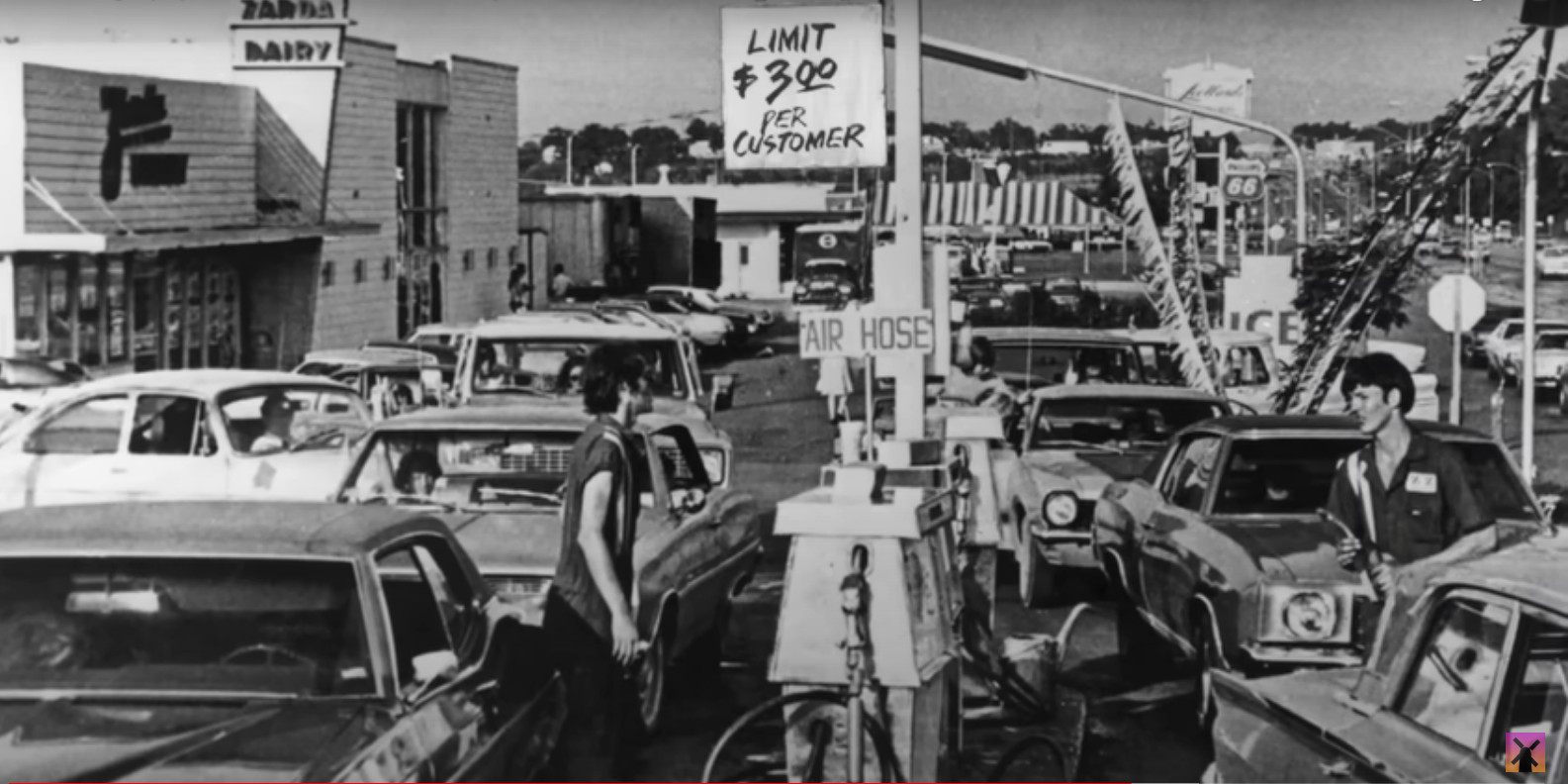
Date: 2025-01-15 Page is: DBtxt003.php txt00023103
US HISTORY
GAS LINES IN THE 1970s
The OPEC induced oil shock of 1973 was an inflection point for the USA
GAS LINES IN THE 1970s
The OPEC induced oil shock of 1973 was an inflection point for the USA

Peter Burgess COMMENTARY
The picture above is a reminder that there was a time when the United States had to face shortages of gasoline which had an impact on virtually everyone in the country
The Arab oil embargo and the formation of the OPEC cartel in the early 1970s fundamentally changed energy economics, and there was nothing that consumers could do about it. I argued at the time that this was the biggest economic event in all of history ... and I think I was right.
The consumer ... pictured above ... could do nothing about the shortages of gas (petrol) nor the increase in price at the pump, and politicians had very little control either.
President Richard Nixon tried to implement price controls to limit inflation but it had no impact ... there were bigger economic forces in play and Washington did not control any of them.
At the time, I did not understand how the (mainly Arab) oil exporting countries were able to establish a cartel and make it work, but I subsequently realized that while there were no consumers that got benefit from the cartel there were, in fact, a good number of big players that would be beneficiaries.
Among countries that would benefit, the UK and Netherlands were going to benefit the most because they had invested heavily in the development of North Sea oil and gas and the cost of this production would be more like $13.00 a barrel than $3.00 a barrel. Without the OPEC cartel pricing, these two countries were going to be in big financial trouble, so they did nothing. Other oil producing coutries like Canada, Mexico and others would also benefit and remained quiet.
It was not only going to be countries that would benefit, but also all the big integrated international oil majors would benefit. These companies had investment in the extraction of crude oil and they would share in any increase in the global price of the product ... so these big companies also remained quiet.
I think one should perhaps also include the international banking community mainly in the USA and the UK as further beneficiaries of the OPEC oil embargo. Walter Wriston, the CEO of CitiBank in New York negotiated for international oil trade associated with OPEC to be conducted using US dollars, and international banks gained a lot of benefit from the post embargo profitability of the global oil energy industry.
All of this came at the expense of consumers and consumer facing corporations that had to absorb huge increases in costs for energy and the embedded cost of energy in everything they purchased. This resulted in record levels of 'cost push' inflation that lasted for a very long time through the 1970s and into the early 1980s. This inflation did not get controlled until there was a major reshaping of supply chains and a lot of product manufacturing got outsourced to low cost locations, mainly in Asia.
This was the end of happy days for American workers. From 1940 to the early 1970s American workers were paid very well by world standards, but since the end of the 1970s to the present time American workers have had little or no wage growth, even though profits for American corporate operations during this period have increased substantially ... perhaps as much as 400%.
Peter Burgess